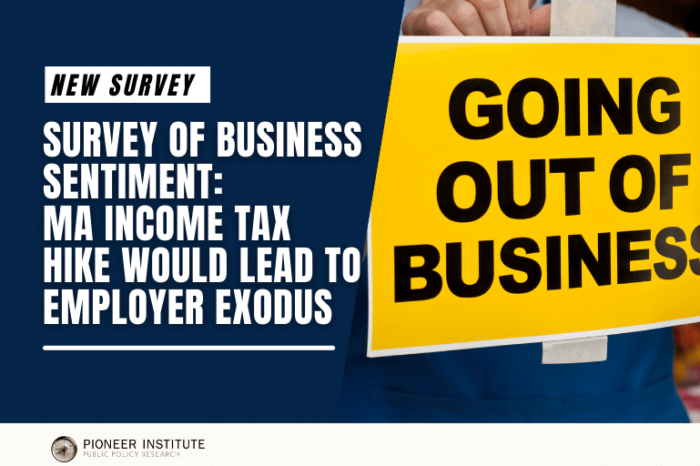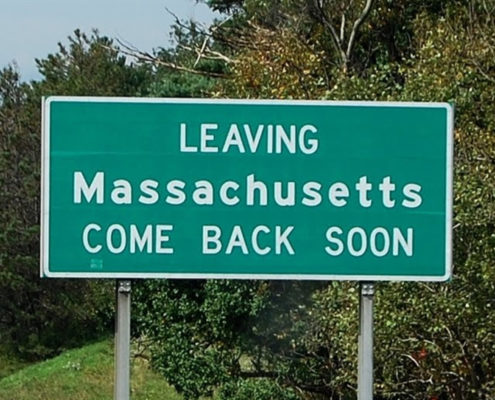Survey of Business Sentiment: MA Income Tax Hike Would Lead to Employer Exodus
Majority of respondents pay taxes on the biggest portion of their income via individual returns, would be subject to the tax hike
BOSTON – Nearly three quarters (73 percent) of Massachusetts business leaders think business associates will leave the state if a constitutional amendment appearing on the November ballot to hike taxes is successful, according to a survey conducted by Pioneer Institute.
Pioneer was invited to survey members of the Retailers Association of Massachusetts and the state chapter of the National Federation of Independent Businesses. Local chambers of commerce also participated in the survey, and a total of 133 individuals responded.
“The survey suggests that business owners and executives are beginning to realize the negative impacts on the economy and tax base of the tax hike amendment,” said Pioneer Executive Director Jim Stergios.
“Small business owners are nearing a breaking point following pandemic-related shutdowns and restrictions, labor shortages, supply chain disruptions, and now record high inflation,” added Christopher Carlozzi, state director of the National Federation of Independent Business. “Instead of increasing taxes for job creators, Massachusetts must create an atmosphere that encourages economic growth and expansion.”
Of the respondents:
- 57 percent report the largest portion of their income on individual returns and would be subject to the surtax. Mostly small “pass-through” businesses such as S corporations, partnerships and limited liability corporations pay taxes via individual returns.
- 72 percent of respondents said they plan to retire in the next decade and 56 percent said they plan to sell their businesses within that period. Of those planning to sell, 58 percent said they expect the gain from the business sale would exceed $1 million, making them subject to the surtax.
- A smaller portion (22 percent) said they expect to sell their current home to help fund retirement. Of those, 56 percent will have lived in the home for at least 30 years before retirement.
- A three-to-one margin (76 percent) believes that Massachusetts is “on the wrong track,” and 62 percent oppose the tax-hike amendment.
“I was surprised by both how many of our members are “pass-through” entities and how many are looking to sell or retire within the decade,” said Retailers Association of Massachusetts President Jon Hurst. “Those numbers should be a wake-up call that our Main Streets are in danger in coming years, and that our public policy leaders need to make sure the Commonwealth has tax and employment laws that will foster a whole new generation of entrepreneurs and risk takers.”
Pioneer Institute develops and communicates dynamic ideas that advance prosperity and a vibrant civic life in Massachusetts and beyond. Success for Pioneer is when the citizens of our state and nation prosper and our society thrives because we enjoy world-class options in education, healthcare, transportation and economic opportunity, and when our government is limited, accountable and transparent. Pioneer believes that America is at its best when our citizenry is well-educated, committed to liberty, personal responsibility, and free enterprise, and both willing and able to test their beliefs based on facts and the free exchange of ideas.
Get Updates on Our Economic Opportunity Research
Related Posts:










